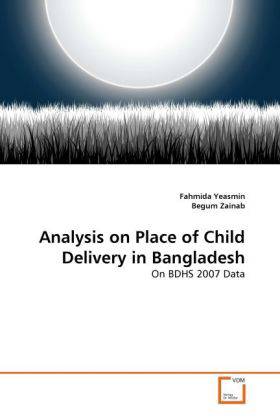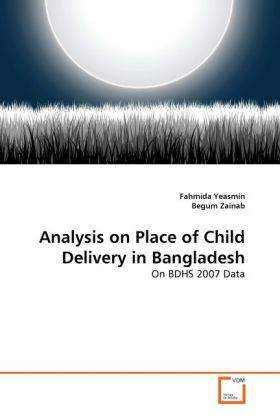
- Afhalen na 1 uur in een winkel met voorraad
- Gratis thuislevering in België vanaf € 30
- Ruim aanbod met 7 miljoen producten
- Afhalen na 1 uur in een winkel met voorraad
- Gratis thuislevering in België vanaf € 30
- Ruim aanbod met 7 miljoen producten
Zoeken
€ 48,45
+ 96 punten
Omschrijving
In order to reduce maternal mortality, the Bangladesh government has increased its commitment to institutional deliveries. We assess the determinants of home, private and public sector utilization for a delivery in our country. Cross sectional analyses of the Bangladesh Demographic Health Survey 2007 dataset. Multinomial logistic regression is used to assess the determinants of the place o delivery. A majority delivered at home (n = 5090, 82.8%); with public and private facility deliveries accounting for 8% (n = 493) and 9.1% (n = 561) respectively. For the choice set of home delivery versus public facility, women with higher birth order and those living in rural areas had greater odds, of delivering at home, while increasing maternal age, greater media exposure, Maternal education and more then three antenatal visits is associated with private delivery. Moreover location, Mother's education, Household living condition, Antenatal visits, father's Education, Media exposure are all the significant variable.
Specificaties
Betrokkenen
- Auteur(s):
- Uitgeverij:
Inhoud
- Aantal bladzijden:
- 60
- Taal:
- Engels
Eigenschappen
- Productcode (EAN):
- 9783639343281
- Verschijningsdatum:
- 29/04/2011
- Uitvoering:
- Paperback
- Formaat:
- Trade paperback (VS)
- Afmetingen:
- 152 mm x 229 mm
- Gewicht:
- 99 g

Alleen bij Standaard Boekhandel
+ 96 punten op je klantenkaart van Standaard Boekhandel
Beoordelingen
We publiceren alleen reviews die voldoen aan de voorwaarden voor reviews. Bekijk onze voorwaarden voor reviews.











